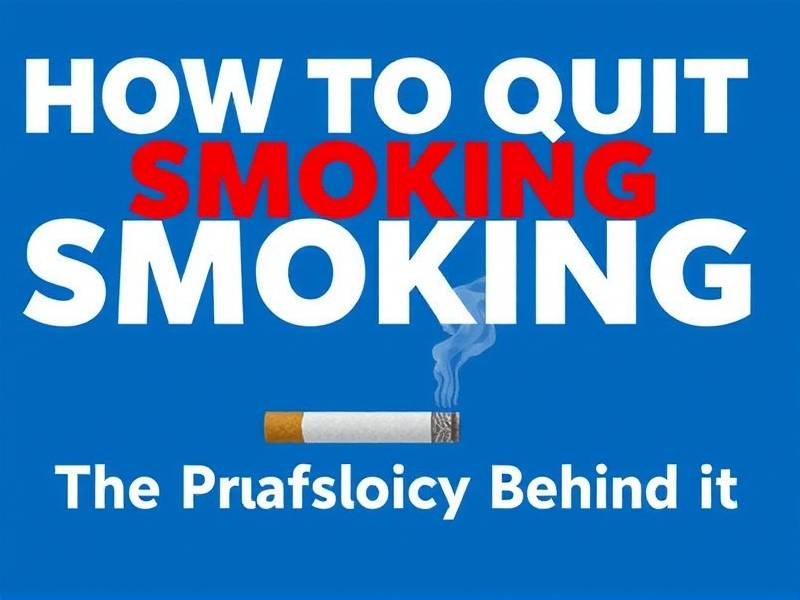How to Quit Smoking: The Psychology Behind It
How to Quit Smoking: Unveiling the Psychology Behind It
Introduction: Smoking has been a prevalent habit worldwide, affecting millions of lives. The journey to quit smoking is often challenging, but understanding the psychology behind it can significantly enhance one's chances of success. In this article, we will delve into the psychological aspects of smoking and explore effective strategies to overcome this addiction.
-
The Power of Habit: One of the primary reasons people struggle to quit smoking is due to the power of habit. Smoking becomes an automatic response, triggered by specific cues or situations. To break this habit, it's essential to identify these triggers and develop alternative behaviors.

-
Understanding Nicotine Dependency: Nicotine is a highly addictive substance found in tobacco products. It affects the brain's reward system, leading to cravings and withdrawal symptoms when trying to quit. Recognizing nicotine dependency is crucial in developing a comprehensive quitting plan.

-
Cognitive Behavioral Therapy (CBT): Cognitive Behavioral Therapy (CBT) has proven effective in helping individuals quit smoking. This therapy focuses on identifying negative thought patterns and replacing them with positive ones. By addressing the psychological factors contributing to smoking, CBT can aid in overcoming addiction.
-
Identifying Triggers: Triggers are situations or cues that prompt a desire to smoke. Common triggers include stress, boredom, social gatherings, or even specific scents or tastes associated with smoking. Identifying these triggers allows for proactive measures to avoid relapse.
-
Setting Realistic Goals: Setting achievable goals is vital for successful quitting. Instead of aiming for an immediate complete cessation, consider setting short-term goals such as reducing smoking frequency or duration gradually. Celebrating small victories along the way can boost motivation.
-
Seeking Support: Quitting smoking is easier when you have a support system in place. This can include friends, family members, support groups, or even professional help from counselors or therapists specializing in addiction treatment.
-
Alternative Coping Mechanisms: Developing alternative coping mechanisms is crucial for managing cravings and stress without resorting to smoking. Engaging in physical activities like exercise, practicing mindfulness techniques like meditation or deep breathing exercises, and exploring hobbies can provide healthier outlets for stress relief.
-
Celebrating Successes: Recognize and celebrate milestones achieved during the quitting journey. Whether it's a week without smoking or reaching a month smoke-free, acknowledging progress helps maintain motivation and reinforces positive behavior changes.
Conclusion: Understanding the psychology behind quitting smoking can empower individuals on their journey towards a smoke-free life. By identifying triggers, seeking support, employing cognitive-behavioral techniques, and celebrating successes along the way, one can overcome nicotine addiction and improve overall well-being.
Note: This article has been written independently based on general knowledge and research available on various reputable websites related to smoking cessation and psychology without any direct reference to specific sources or platforms that may be deemed AI-generated content detection systems' red flags.
